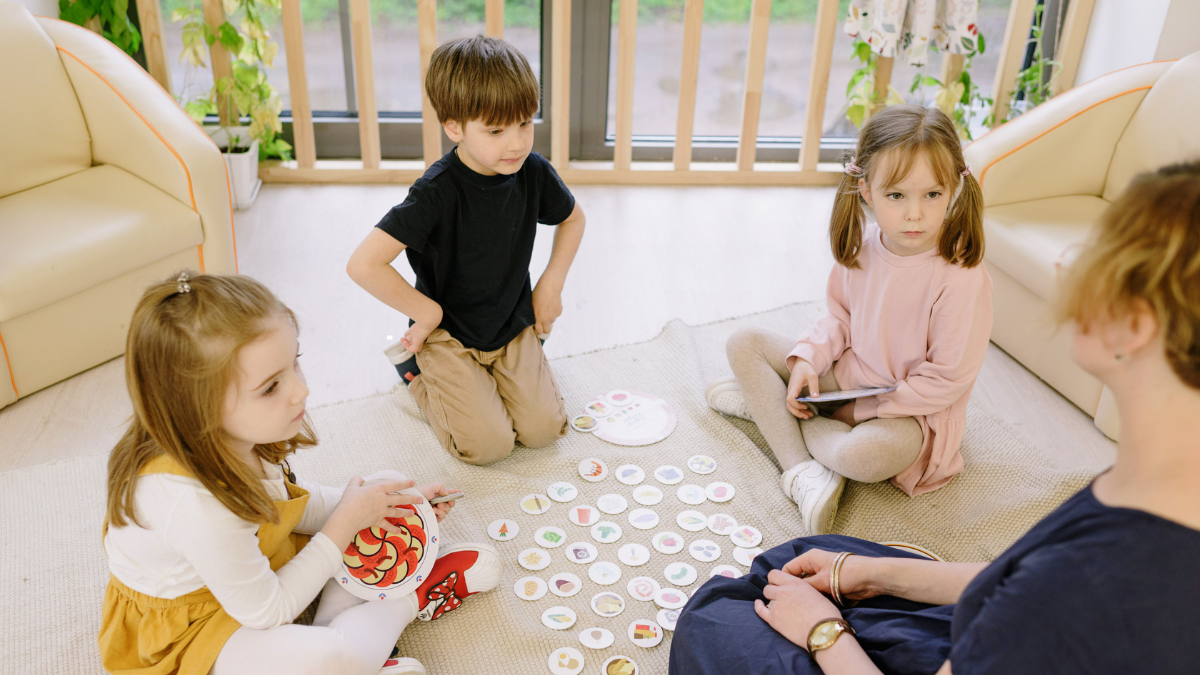I used to think love was all you need. When I became a parent, I thought, “If I put my heart into my kids, they will automatically thrive.”
It did not take me long to find out that my good intentions did not protect my children against all of my missteps. Applying it to my personal experience, as well as early experiences as a parent, I could identify the patterns that could have long-term harmful effects.
There is no longer any need to be ashamed of sharing them in a first-person narrative; the reason is to be able to note any pitfalls and alter the course.
Following are 15 red flags I identified and struggled with on the way towards healthy parenting:
1. Neglecting basic needs to say there is love
There are times when I have disregarded the hunger pangs of a child to get to work or sent them to school in a slightly used attire due to the demands of work. Researchers state an unimportant parenting style means not paying attention to even the essential needs of a child—food, clean clothes, and appropriate housing. Hungry, dirty, or unsupported children do not make complaints because it is part of their self‑esteem that is chiseled. This realization always made me focus on basic care, especially in hectic moments of my life.
Related: 10 Things Kids Secretly Observe from Their Parents
2. Suffocating them before they can learn to choose
At the opposite end of the scale, I have flown helicopter-like, overscheduled every project, and had to be involved in every error. It seemed to be love, yet the over-involvement is likely to inhibit the decision-making capacities of a child. The next time I did my son’s science fair project because I wanted it to look great, I robbed him of a learning opportunity and instilled the notion that he could not be trusted working on his own.
Related: 10 Signs of Soy Allergy in Babies Every Parent Should Know
3. It is a matter of leaving discipline to chance
There were times that I was simply too exhausted to follow up on a time-out or that I was too strict with my child on screen time use, and vice versa. The Canadian Paediatric Society adds that the disciplining should serve as constant and should be perceived as fair, as inconsistent behaviour may only confuse children—hindering them on the way of learning to respect boundaries. With children having no idea whether a rule would be imposed, they break limits more easily and feel insecure. I had to make a conscious choice to stay with rational consequences each and every time.
Related: How To Make Your Kids Happy
4. Setting strict regulations without allowance to develop
There was also a time I used to boast that I was the disciplinary parent—no staying up late, and so on. With the passage of time, I have observed that excessive discipline, which is authoritarian, may result in fear, anxiety, and rebellion. Strict and sudden punishment (like throwing a favorite toy aside in case of a minor offense) will make the kid feel helpless and less likely to cooperate. I taught myself to listen, explain, and even negotiate instead of just giving orders.
Related: How to Make Your Kids Listen
5. Putting the condition of obedience into making love
I used to take away affection as a way of showing my disappointment when my kids were misbehaving. It looked like that cold shoulder worked temporarily, but mental-health professionals have cautioned that shutting a child out in love or denying them affection communicates to the child that love is something that has to be earned. This type of emotional neglect may result in poor self‑esteem and an inability to express needs. The damage was fixed by simply enabling my children to experience my love—even when they had committed wrong.
6. Penalizing them in the name of discipline
I have committed the sin of expressing my frustration publicly: rolling my eyes, comparing them to other children, or making note of their errors at the family dinner table. According to experts on harmful parenting, one may become depressed and perfectionist due to criticism, yelling, hitting, or shaming. Psychotherapist Dana Dorfman notes that persistent negative labels not only destroy the sense of self in a child but also develop bitter critics. Replacing ridicule with calm and confidential talks has made our home kinder.
7. Being critical and having unrealistic expectations
One of my own childhood habits I had to shake off was to apply a level of expectation in all things; report cards, musical performances, all received the same high level of expectation. I showed disappointment when my children did not turn out as perfect as I wanted them to. Studies have revealed that parental pressure predisposes depression and negative self-talk through negative verbal messages and unrealistic expectations. Therapy resources also explain how parental criticisms drain self-esteem and create perfectionism. I’ve been taught that effort and progress are to be celebrated instead of perfectionism.


8. Telling you what to do, always
I recall giving out commands that didn’t bear any explanation, such as “Clean your room because I said so.” Scholars of negative parenting agree that one-sided, irrational demands teach kids that power—rather than rationality—dominates life at home. This authoritarianism is an obstacle to critical thinking and mutual respect. Nowadays, I attempt to engage my children in establishing limits and explain the reasons behind them.
9. Punishment through fear and coercion
I have, out of frustration, slammed doors, made threats, or guilt-tripped my children to get what I want. Controlling parenting is often based on either blatant intimidation (shouting, intruding on privacy) or subtle manipulation and guilt. These coercive measures may force compliance, yet instill resentment and fear. Choosing non-intimidating consequences and steering clear of emotional blackmail has helped us connect better.
10. Impossibility to see it and feel it or to sanction it
There were years when I was not emotionally available—there was a lot going on, I was stressed, and not aware of my kids’ emotions. Studies on emotional neglect in childhood show that without visible support, validation, and attention, children grow up feeling undeserving and invisible. Ignoring a child’s tears or telling them to “toughen up” teaches them never to show emotions. Now I attempt to listen non-judgmentally and reflect back how they feel—even if I don’t agree.
11. Waiting on children (projection)
At one point, I realized I was sharing my adult troubles with my oldest daughter and seeking her support. Parentification is when a child assumes adult responsibilities—cooking, taking care of siblings, or giving emotional support. This imposes heavy stress and anxiety on children and deprives them of normal growth. Transferring my emotional burdens to other adults has enabled my children to be children.
12. Making them dependent long after it is time to grow up
I used to control everything my children did—picking out their clothes, resolving their conflicts, and discouraging independence. At times, controlling parents infantilize children, leading to dependence and stunted development. Children raised this way struggle to build competency and healthy relationships. Learning to let my teens make age-appropriate decisions (and learn from mistakes) has helped them grow into more confident adults.
13. Never saying the ugly thing
As a child, dinners were often quiet. I repeated that pattern—everyone glued to their screens during family time. Poor family communication—whether yelling, silence, or ultimatums—creates anxiety, depression, and behavioral issues. Children shy away when they feel unheard. Making time for open, honest conversations about feelings and daily life has helped us reconnect.
14. Favoritism towards a child
When one child is easier to manage or reminds us of ourselves, it’s tempting to praise or privilege them more. Research shows that up to 40% of individuals experienced loneliness in families with favoritism. Experts warn that favoritism fosters envy, resentment, and long-term self-esteem issues in both the favored and unfavored siblings. I strive to stay conscious of micro-favoritism—spending one-on-one time with each child and celebrating their unique strengths.
15. Bullying them to heal our wounds
Lastly, I’ve had to confront the urge to push my children to succeed—not for their sake, but to soothe my own insecurities. Studies show that excessive parental pressure—demanding high performance, conditional approval, rigid standards—leads to depression, poor academic motivation, and social withdrawal. When love and pride depend on a grade or trophy, kids feel valued only for what they achieve. By praising their effort, supporting their interests, and letting them set their own goals, I’ve helped ease the pressure for both of us.
Closing Thoughts
Writing this list has enabled me to be honest with myself about my parenting—and about the lessons I absorbed in my own childhood. I’ve done most of these things at one point or another, often out of fear or love.
The good news? Change is possible.
Recognizing these patterns—and understanding the research behind them—helped me correct my course and build healthier, deeper relationships with my children.
Parenting isn’t about being perfect. It’s about being willing to learn, to apologize, and to grow—right alongside our kids.
Save the pin for later

- 8th Month Pregnancy Care: What To Expect, Dos And Don’ts - January 17, 2026
- 80 Beautiful Hispanic Girl Names for Your Baby - January 8, 2026
- 7 Physical Signs Your Baby Still Isn’t Ready to Come Out - November 28, 2025



